Community Building Timeline
The Seeds for Social Change

“The virtues of cooperation allowed the seed of The Working Centre to take root on Queen Street South in downtown Kitchener in 1982. It is with grace that the soil into which we put down roots over 40 years ago continues to be nourished. We were fortunate to inherit and extend the values we found around us in downtown Kitchener.
The virtues of sharing were paramount in our early days, an ethic that became rooted in the fabric of the centre, an ethic which helped to develop a wide network of informal and formal cooperative supports. We see hope in the cooperative spirit of The Working Centre. It demonstrates the potential for transitioning to common work. This happens when we create community structures that give people agency to develop cultural supports that extend solidarity and that consciously increase the social bond between people and their environment.”
Adapted from Joe and Stephanie Mancini, Transition to Common Work: Building Community at The Working Centre, WLU Press, 2015, p 10.
1982
The Working Centre is Established
The Working Centre is established in a second floor office space at 94A Queen St. S in Kitchener. The initial focus offers employment support and resources.
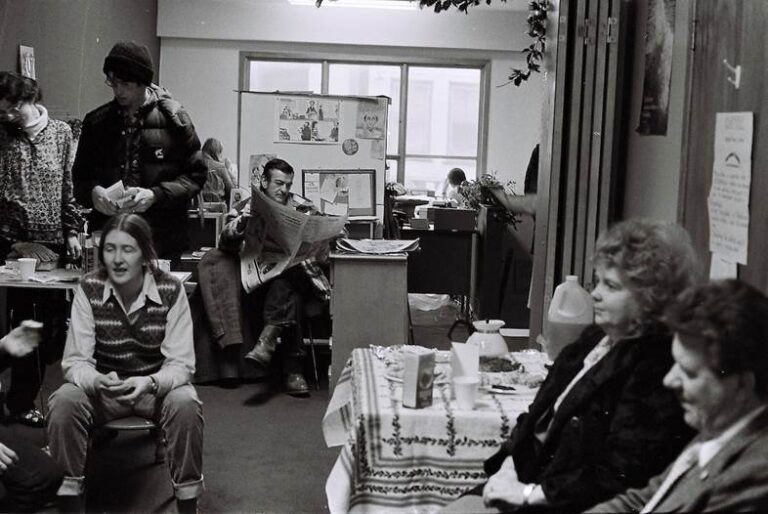
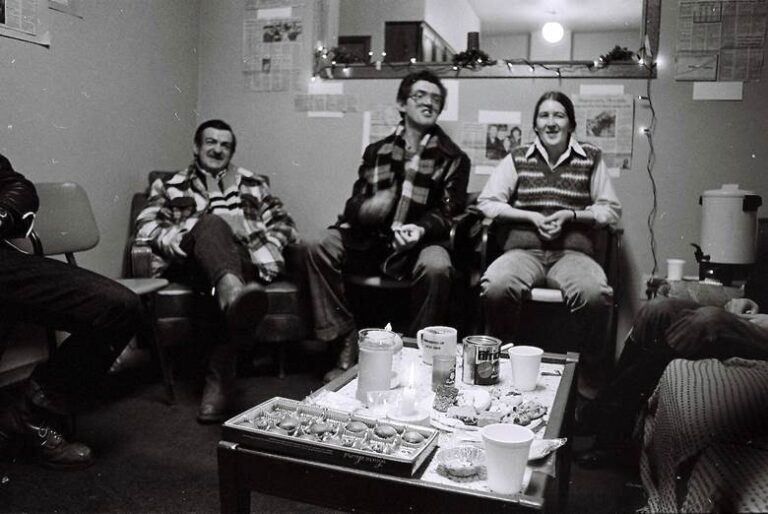
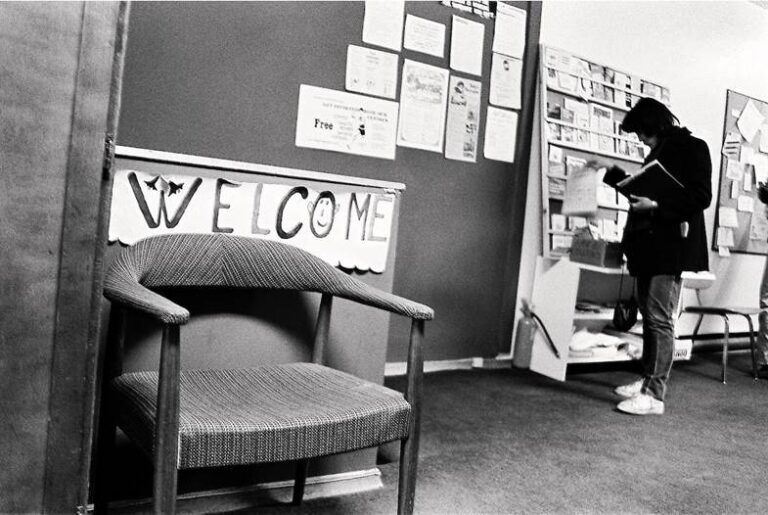
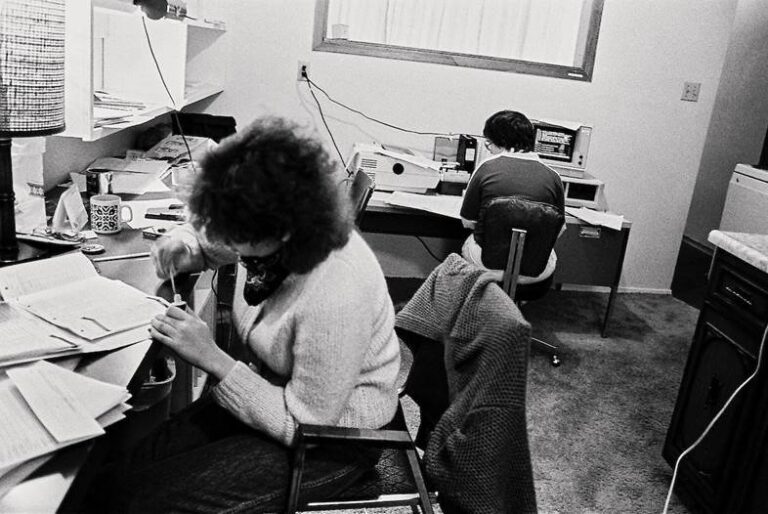
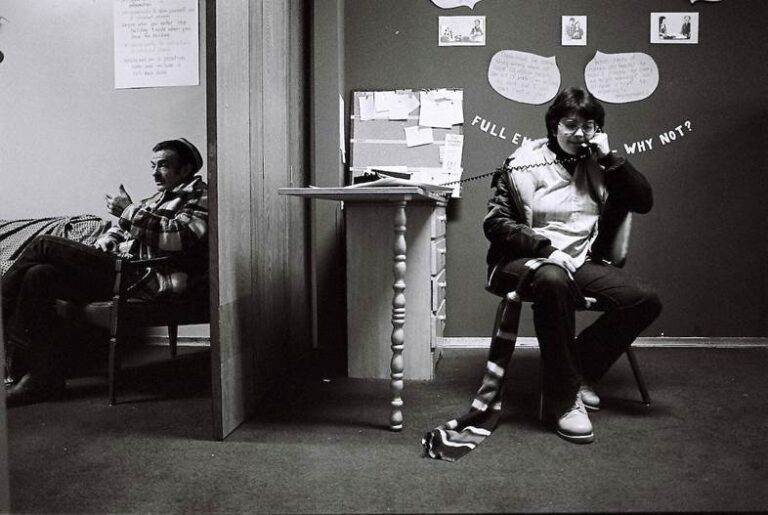
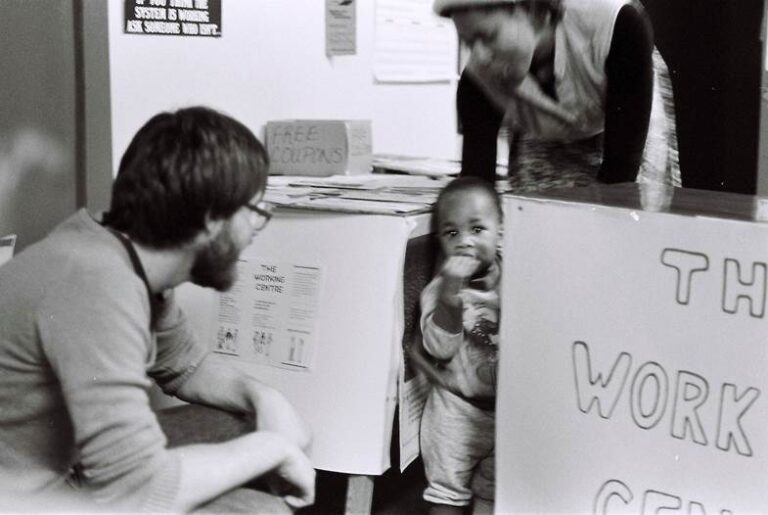
First issue of Good Work News is published
Our quarterly newspaper reports on our latest community building efforts and seeks out ideas which redefine work, consumerism, and sustainable living. Over 150 issues have now been published.
1984
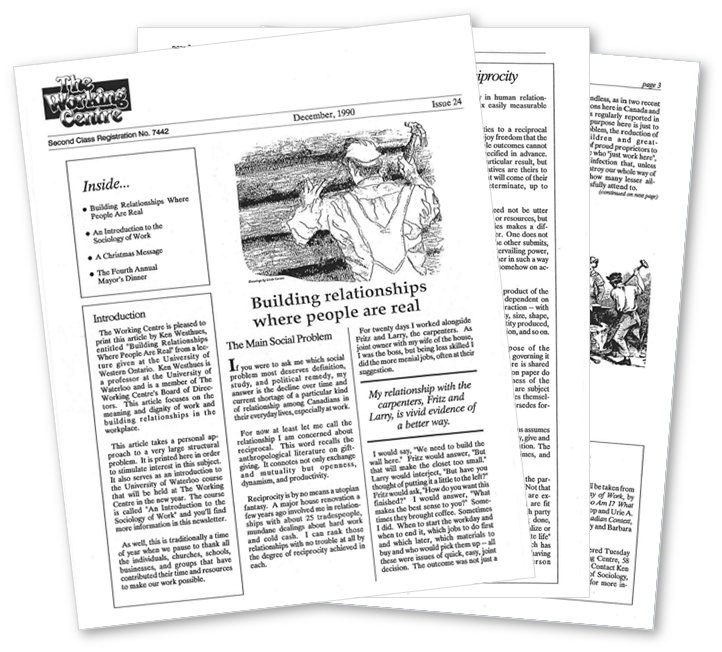
1985
St. John's Kitchen Opens
The first meals at St. John’s Kitchen are served at St. John the Evangelist Anglican Church on Duke Street.
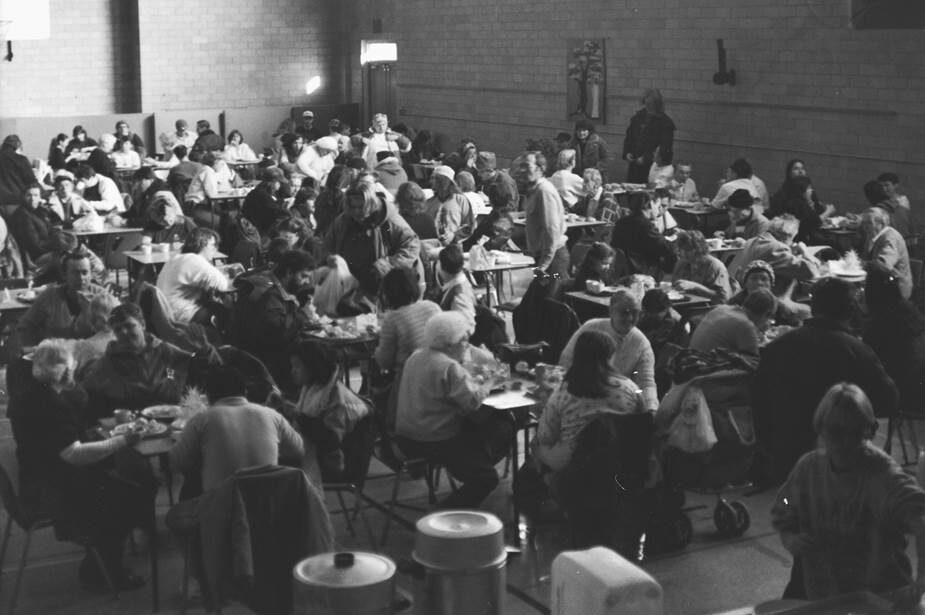
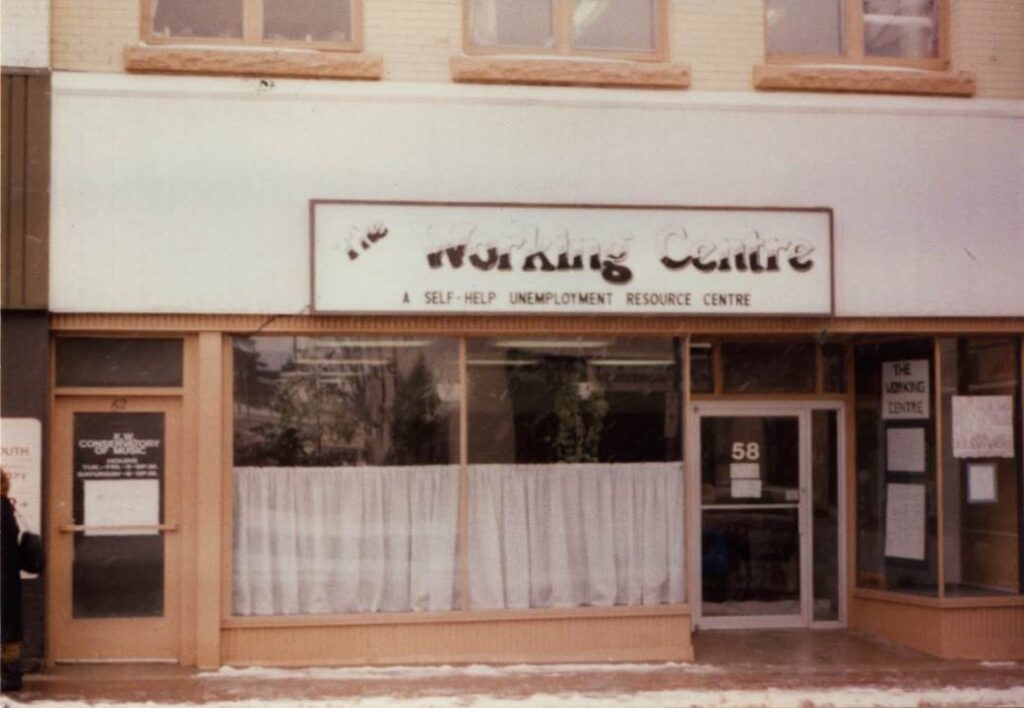
1986
Job Search Resource Centre Opens
Following renovations, The Job Search Resource Centre opens in a rented space at 58 Queen St. South
1988
The First Mayors' Dinner
The first fundraising event takes place in recognition of local community builders. The first honouree is Mayor Dom Cardillo. In 1989, the annual event is renamed The Mayors’ Dinner.
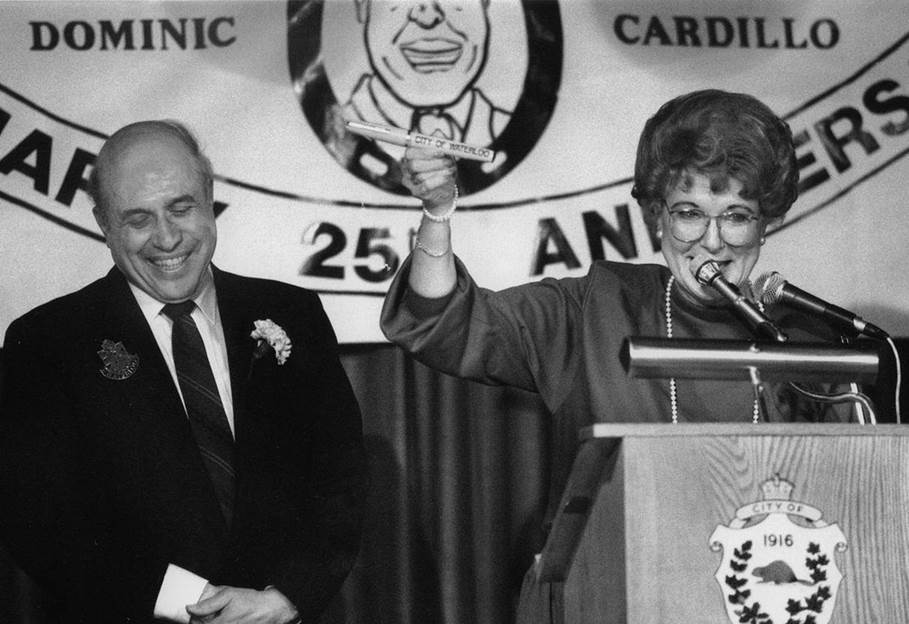
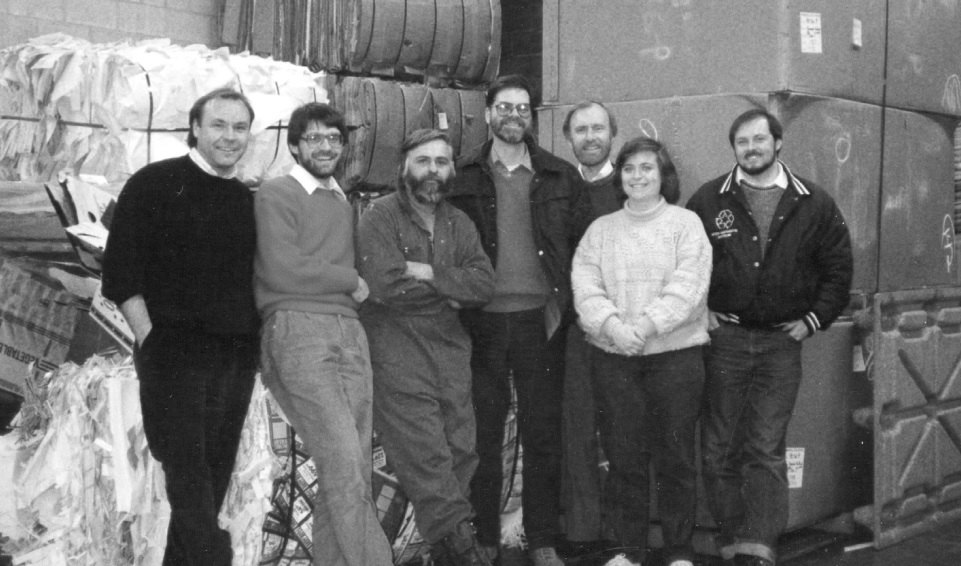
1989
Tri-Tech Recycling Opens
Tri-Tech Recycling opens at Dotzert Court in Waterloo as a multi-purpose, multi-material public recycling depot. At it’s peak the depot employed 12 workers and recycled nearly 400 tonnes of material per month. Facing financial challenges, the depot closes during the 1991 recession.
1994
Purchase of 58 Queen St. South
With the purchase of the full 58 Queen St South building, apartments are added to third floor and renovations occur over the following years to expand into 66 Queen St. South
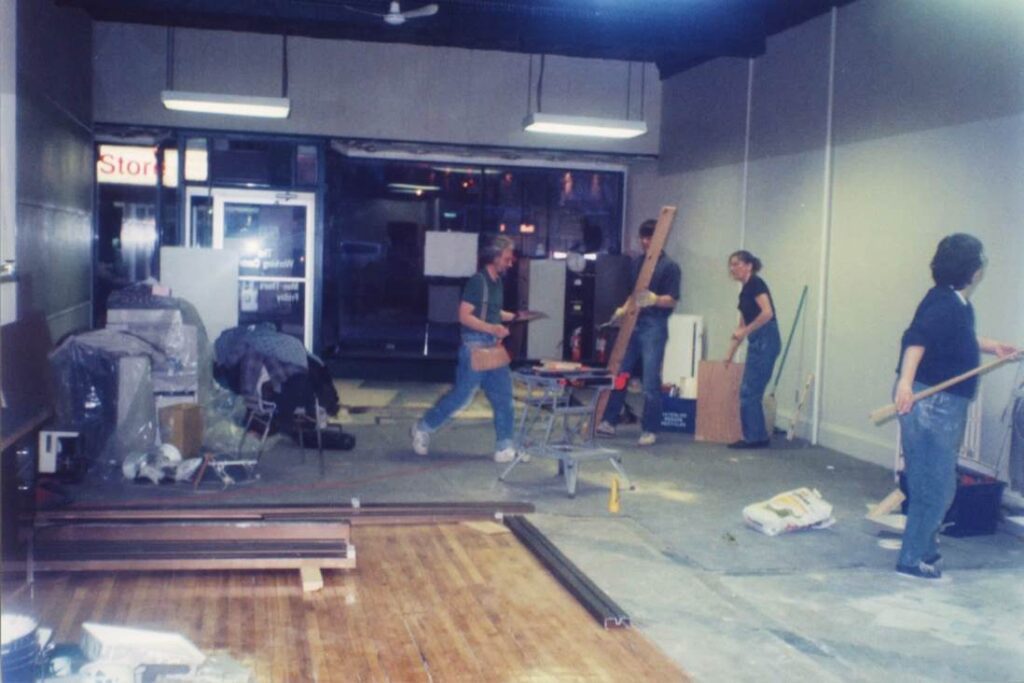
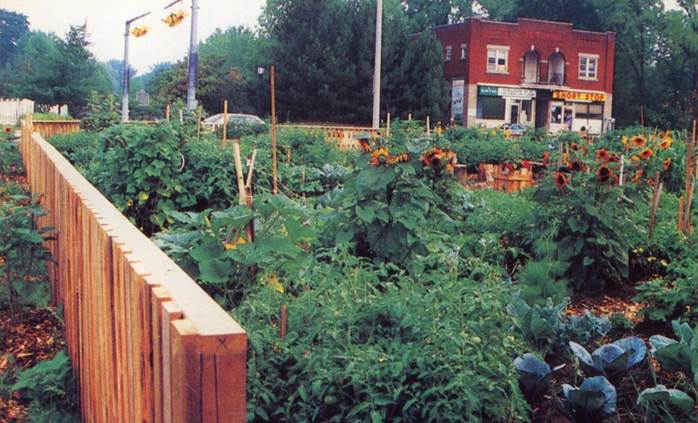
1996
Queens Green Community Garden is Established
Queens Green was our first urban agriculture project. It started by helping two university graduates apply for a city grant and establish a community garden on a vacant flood plain lot on Queen St. South.
For over 15 years, the co-operative neighbourhood garden produced vegetables and herbs while providing beautiful green space in the core of the city.
1997-98
Purchase and Renovation of 43 Queen St. South
After several years of renovation work, 43 Queen opens in October 2000. The main and second floors include Recycle Cycles Bike Shop, Papercraft, specialized employment supports, public access computers, The Front Window craft store, and an office for Baterworks. Multi-bedroom apartments on the third floor are used for emergency housing
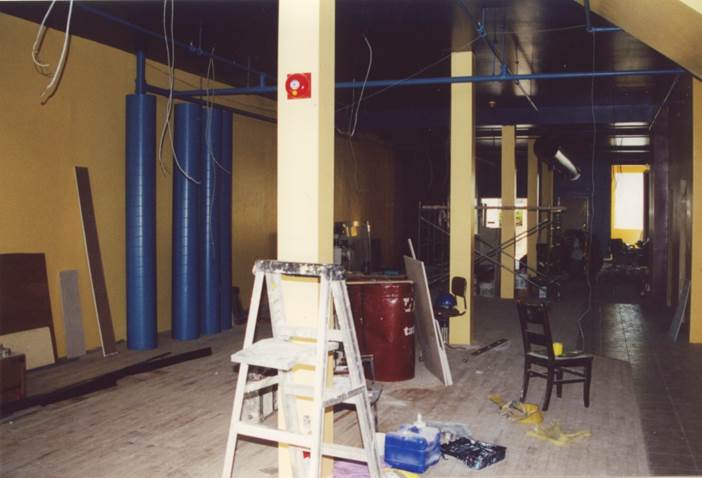
Branching Out
In the early 2000s, The Working Centre community continued to grow, branching out with an expansion of our Queen St. building, a new Victoria St. location, and new exciting community tools projects.
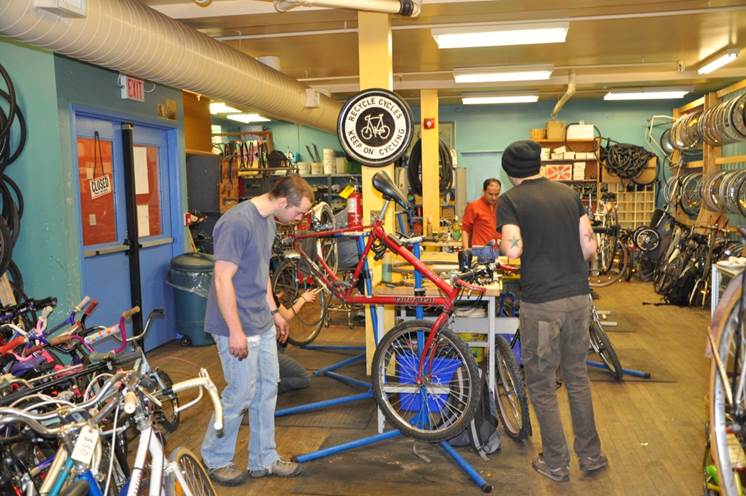
2000
Recycle Cycles Community Bike Shop Opens
Opening on the second floor of the newly renovated 43 Queen St. building, Recycle Cycles offers space and supports for community bike culture to grow.
2000
Computer Recycling Opens
The Computer Recycling projects opens at 43 Queen St with the goal of reducing electronic waste, reusing components, and selling affordable computers to the community.
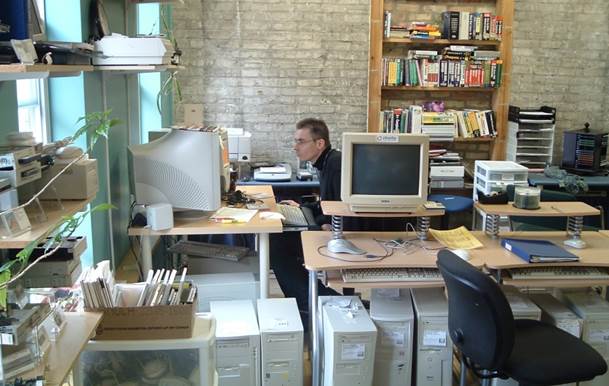
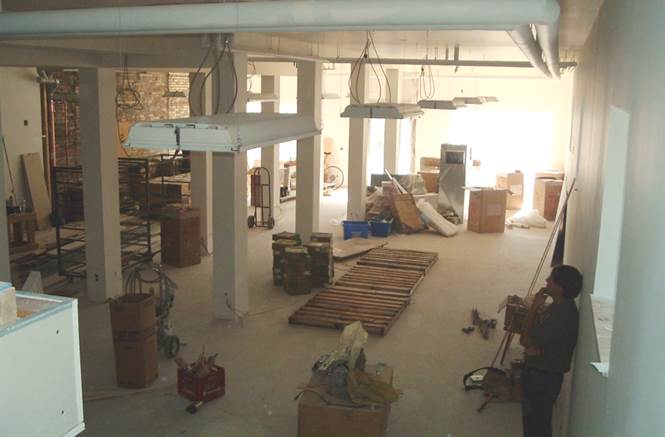
2003
Puchase of 66 Queen St. South
Located next to our 58 Queen location, 66 Queen had remained empty for five years until it was purchased as part of a plan to expand our Job Search Resource Centre and create new space for our community supports.
2006
Queen Street Commons Cafe Opens
The Commons Cafe opens at 43 Queen St. South. The cafe would quickly become a popular community hub in the downtown.
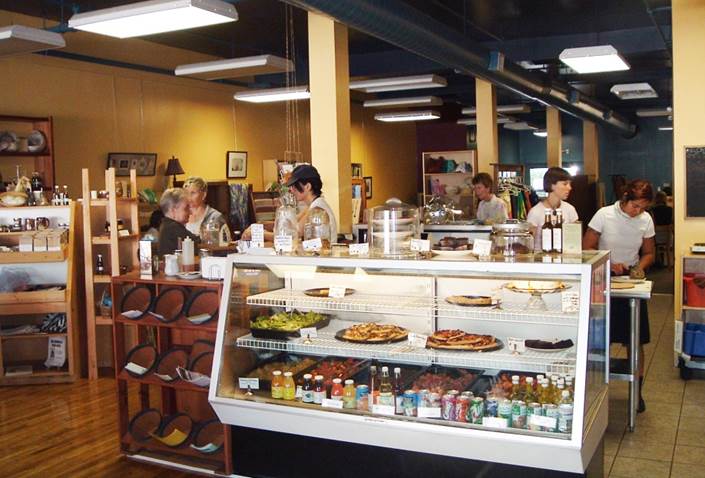
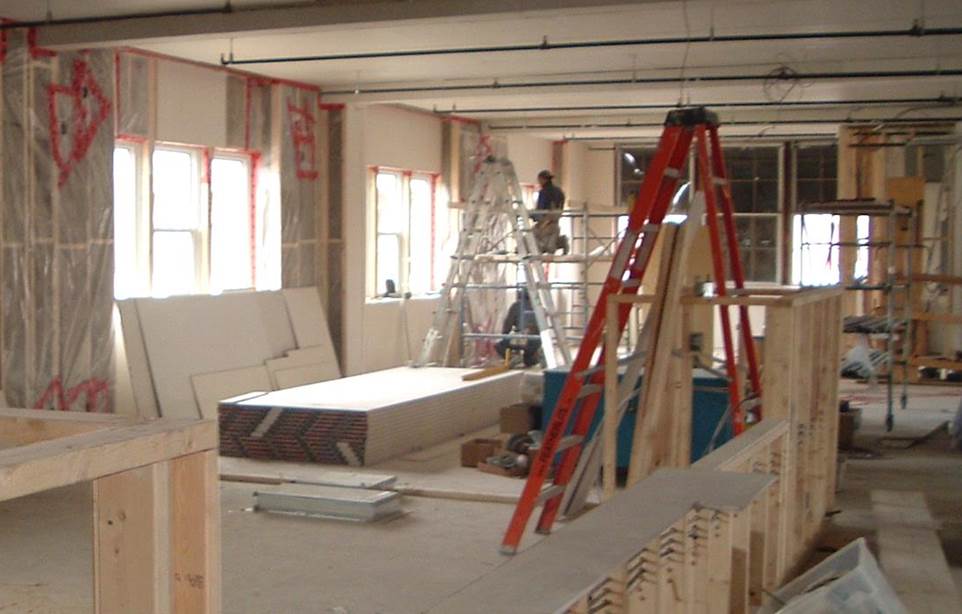
St. John's Kitchen Moves to 97 Victoria St. North
St. John’s Kitchen moves to the second floor of the newly renovated 97 Victoria St. N location; Worth A Second Look Thrift Shop operates on the ground floor
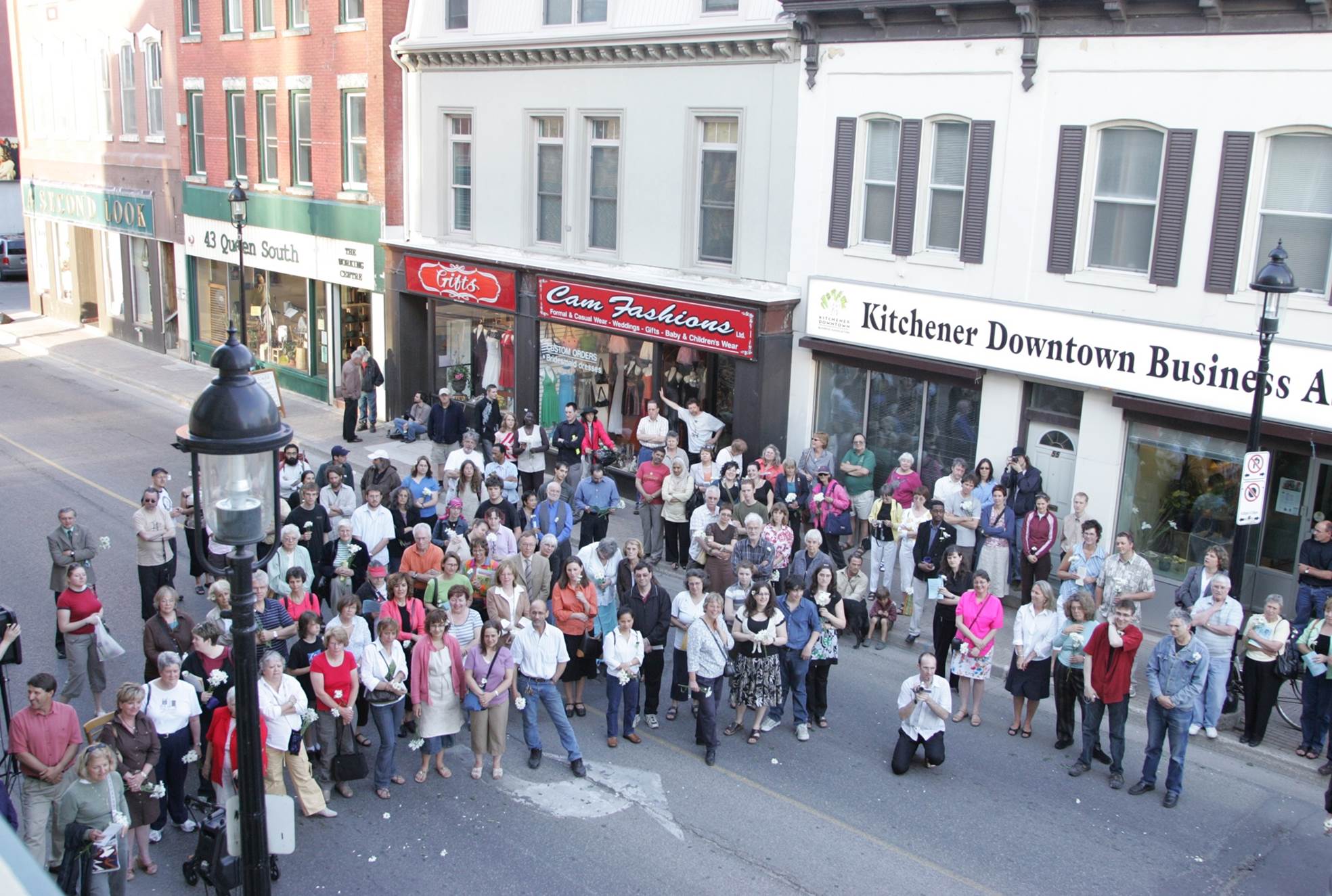
Celebrating our 25th anniversary on Queen Street in 2007
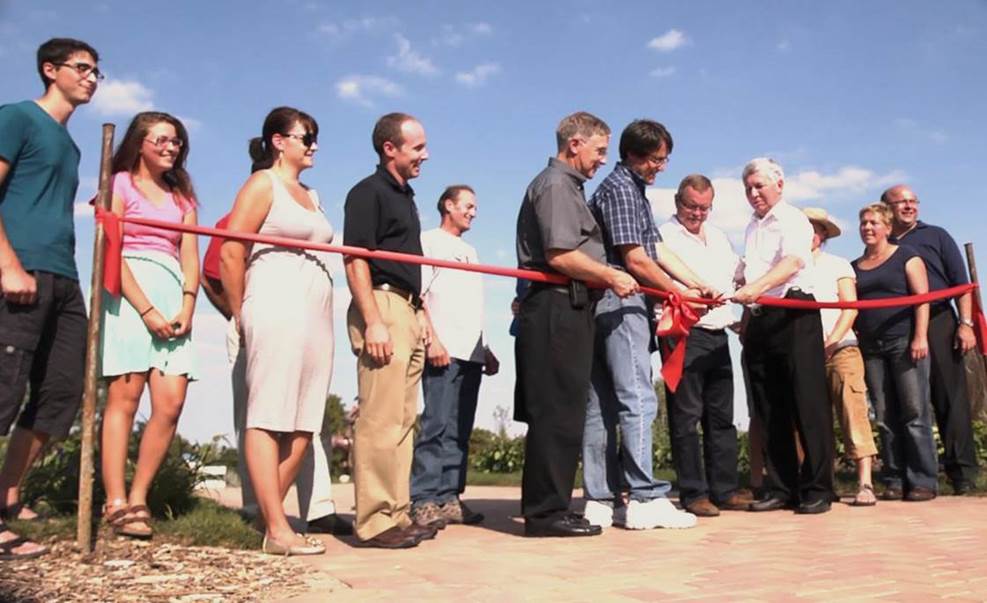
2011
The Market Garden Opens
Our Market Garden opens on Union Street. The garden continued to grow as a successful example of urban agriculture while operating for 10 years until closing in 2021.
2014
Purchase of 256 King. St. East
The Working Centre purchased 256 King with plans to renovate the building to include eight housing units on the upper floor and project space on the ground and basements levels. The revitalized building was named “Fresh Ground.”
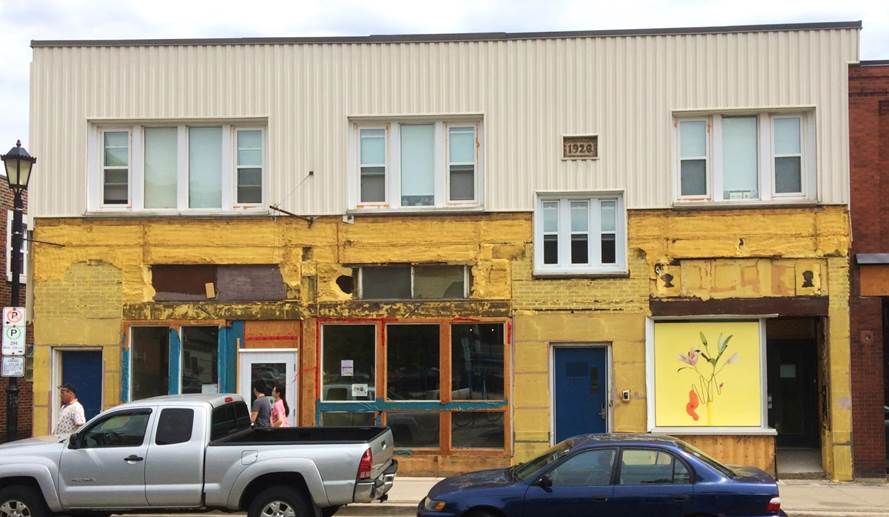
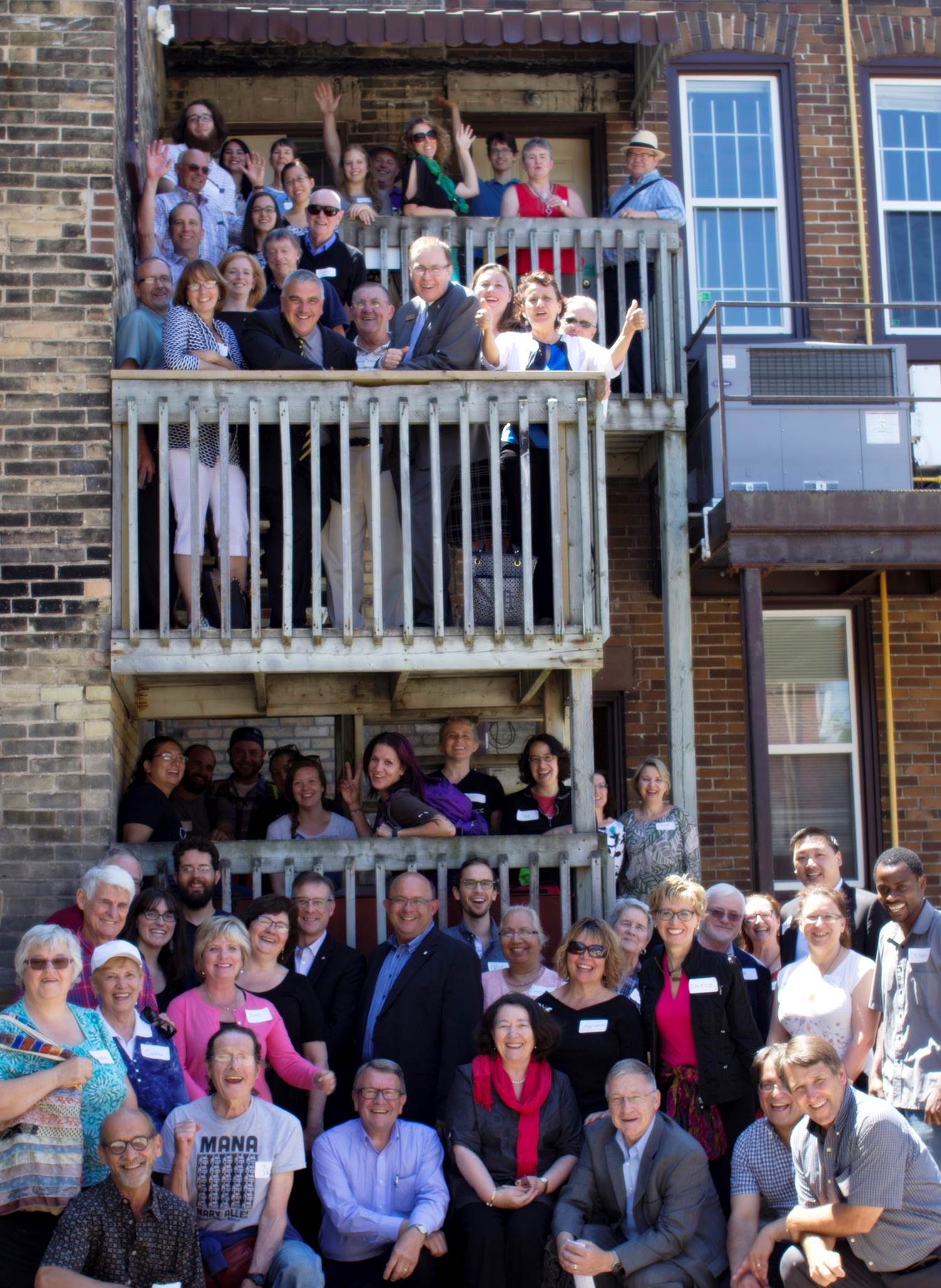
2015
Local elected officials join staff and volunteers of The Working Centre behind the newly purchased Fresh Ground building at 256 King Street East in summer 2015
2017
Fresh Ground Opens
Following extensive renovations, Fresh Ground opens at 256 King St. East. The building includes a cafe, an events space, the Commons Studio, and housing units on the upper floor.
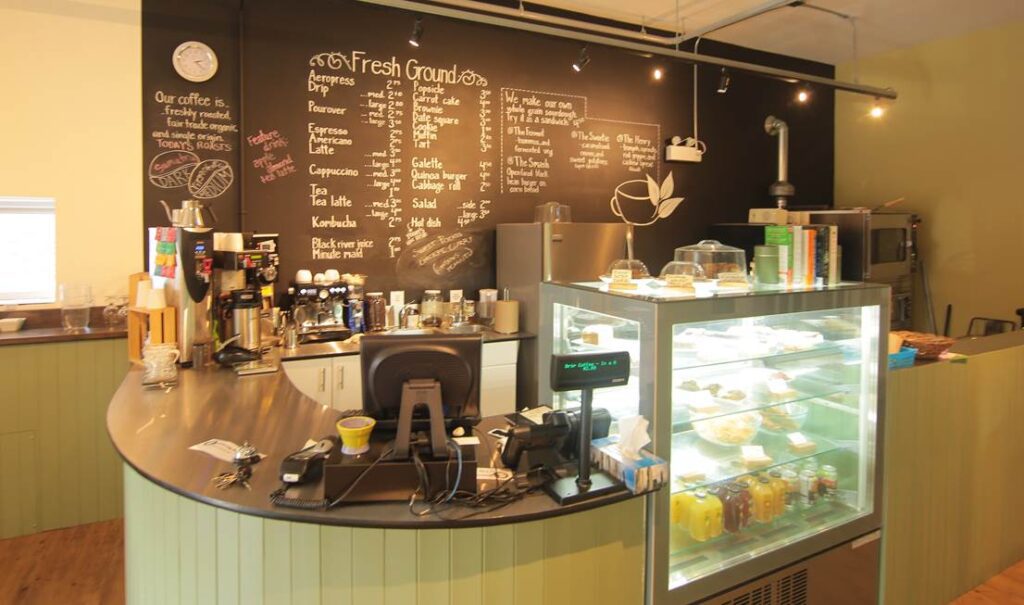
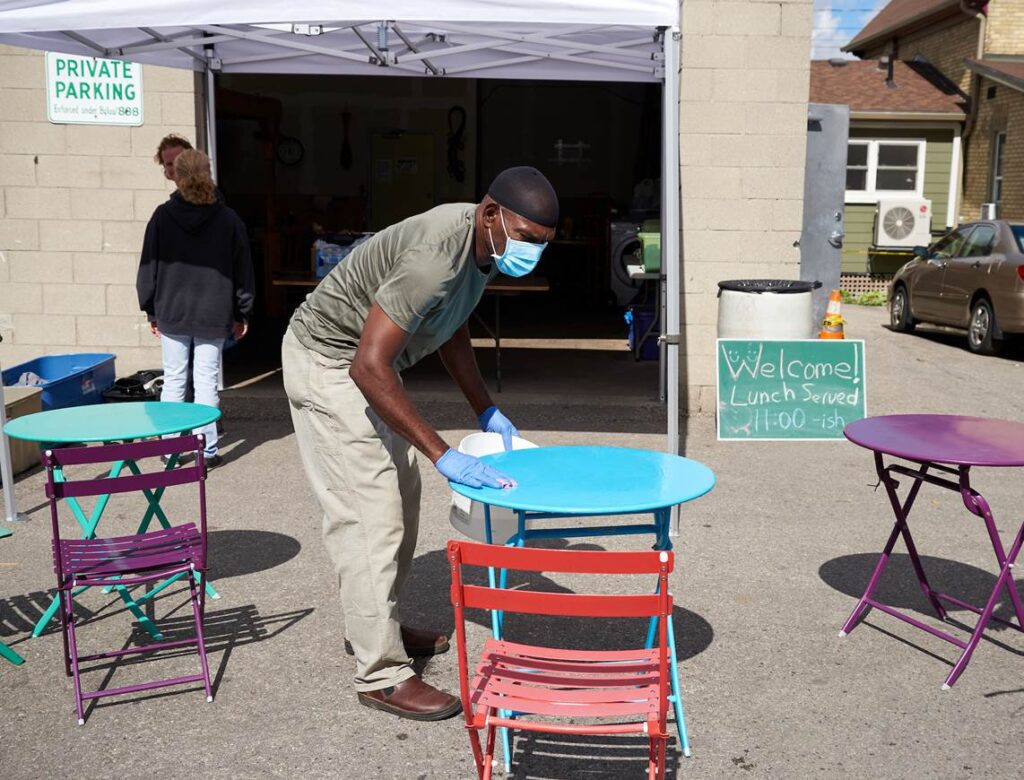
2020
Adapting to COVID
The pandemic created many challenges that required shifts in our approach and creative solutions to maintain supports and services to those in our community.
2020
University Ave Housing is Established
Working in partnership with the Region of Waterloo, we converted a former student dorm into interim housing for 80 residents who were previously homeless. The housing included 24/7 staff support, daily meals, and community-based resources.
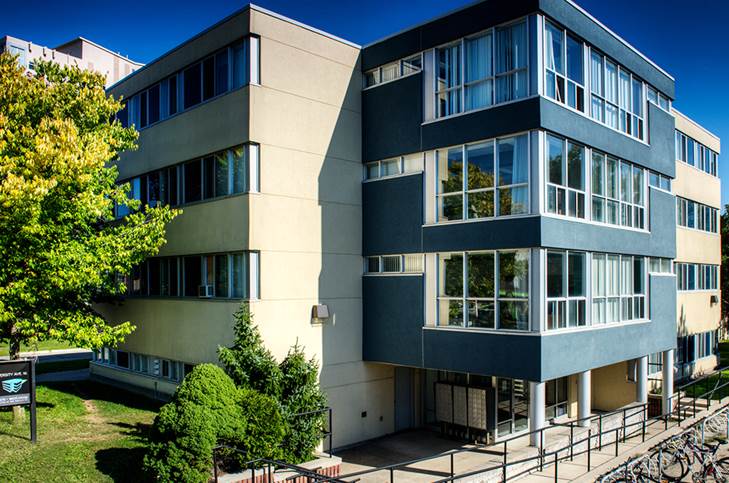
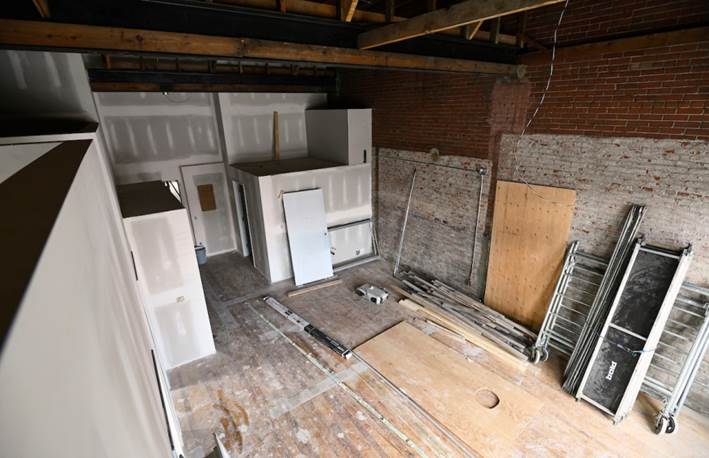
2021
Purchase and Renovation of 44-54 Queen St. South
After the purchase of 44 Queen St. South, major renovations begin on the 2nd and 3rd floors of 44 and 58 Queen to add 21 units of affordable housing. The project completed in May 2023 and residents moving in soon after.
2022
Re-envisioning 97 Victoria
Plans are made to re-envision the 97 Victoria St. North location to add 44 interim housing units and build a new modern building for St. John’s Kitchen. The project is part of the Making Home campaign and is expected to be completed by the end of 2025.
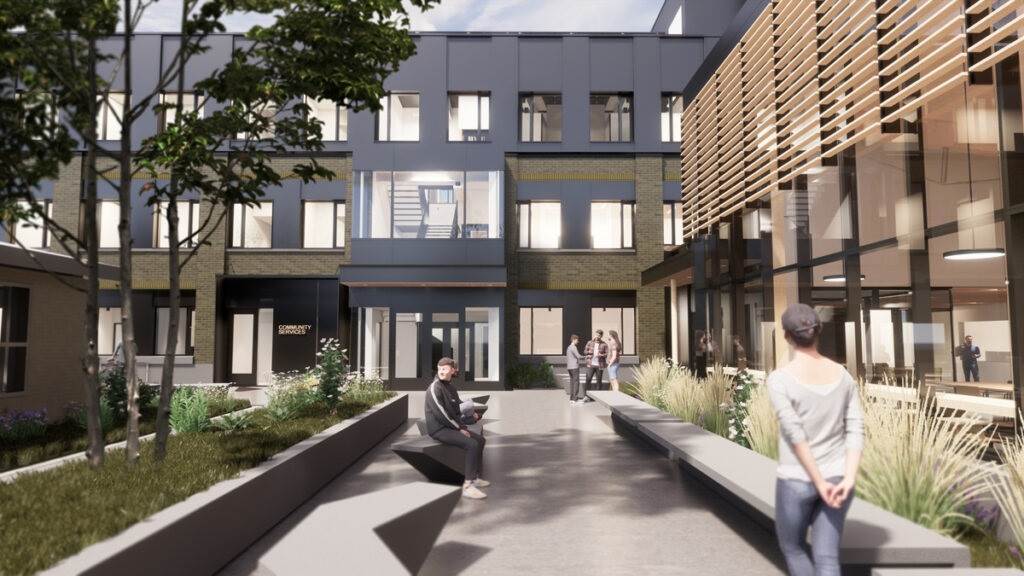
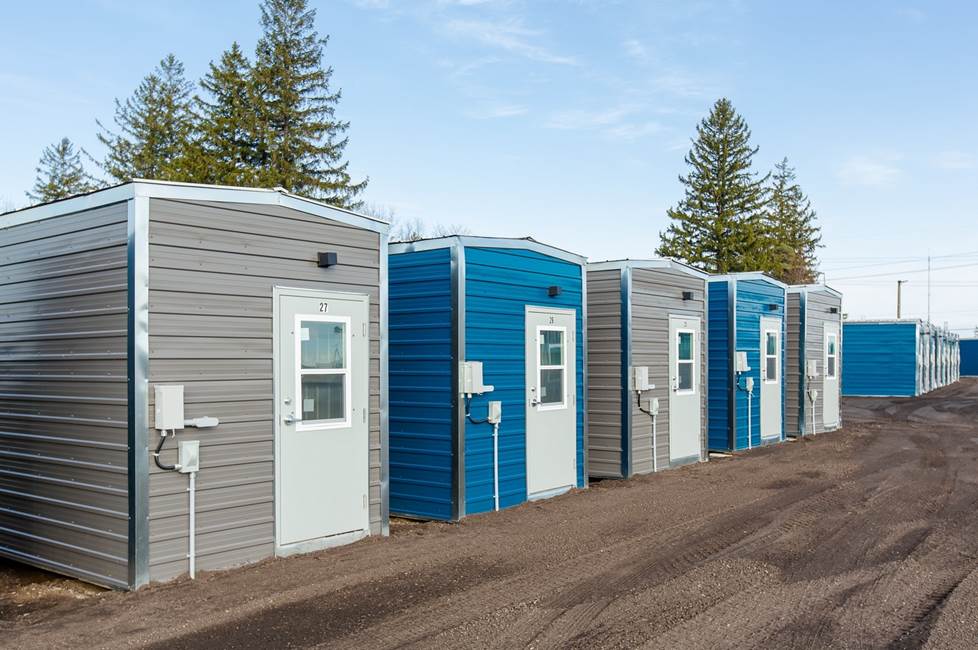
2023
Erbs Road Shelter
In April 2023, the Erbs Road Shelter opened providing 50 individual cabins that include a bed, desk, chair and heating/cooling. A central community building at the site provides washrooms, showers, laundry and space for food distribution. The shelter quickly became a place of refuge for 50 people who found support and stability after finding themselves for long periods without housing.
2024
Community Tools Projects Re-Open
Worth A Second Look thrift store, Recycle Cycles community bike shop, and Fresh Ground Cafe re-open at our Fresh Ground location at 256 King St. East and 37 Market Lane.
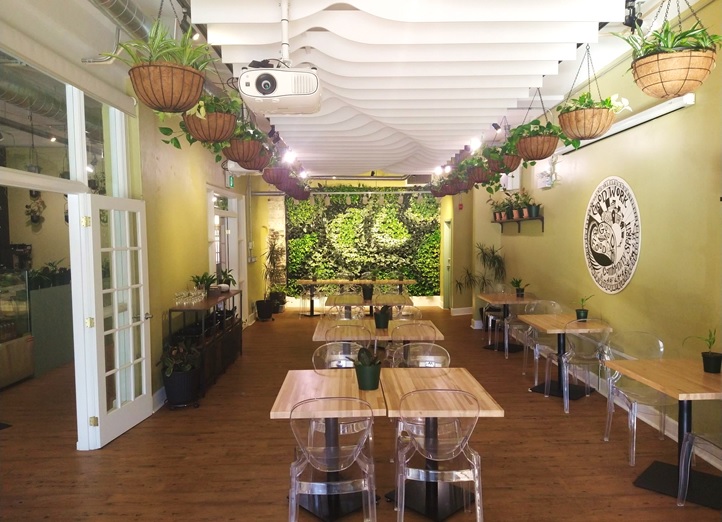
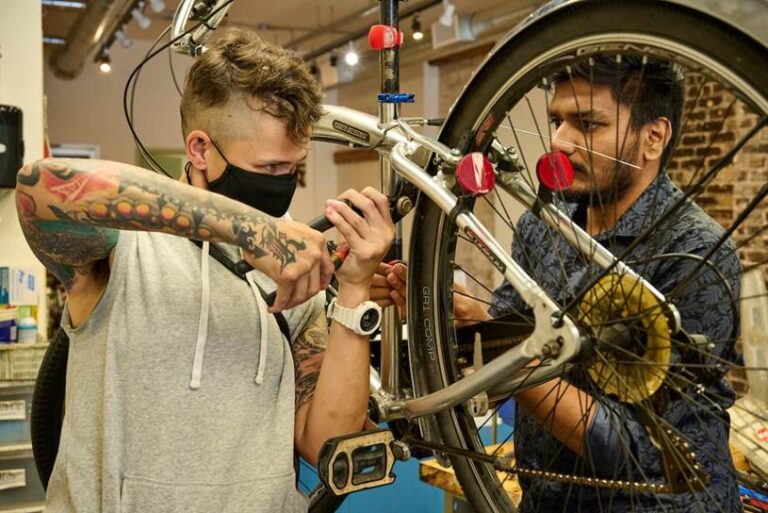
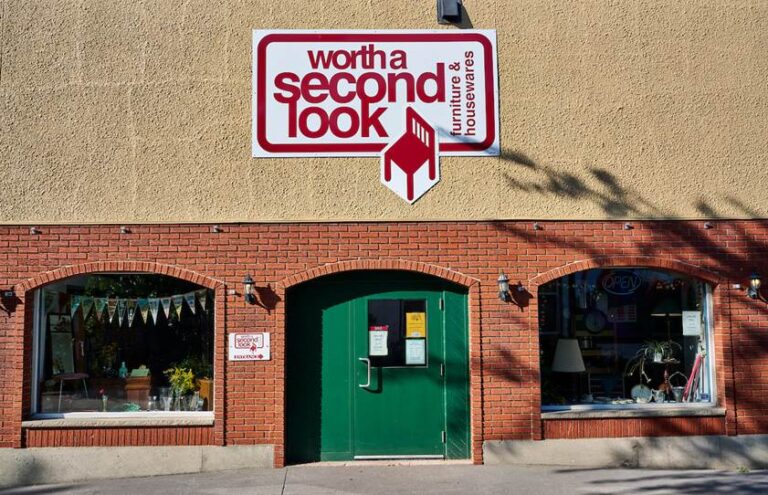


Building Community Together
Over 40 years since it’s founding The Working Centre community has grown to include 35+ projects, 12 properties, 150+ staff, hundreds of volunteers, hundreds of daily visitors, and thousands of donors and contributors.
The Working Centre thanks all the volunteers, donors, supporters, community partners, and staff who have helped us build community.
